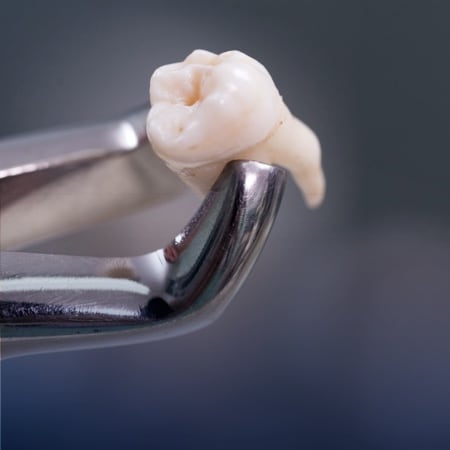Experiencing pain in your jaw can be unsettling, especially when it disrupts your daily routine. One common question that often arises is whether wisdom teeth can cause temporomandibular joint disorders (TMJ).
Wisdom teeth can potentially contribute to jaw pain, but they are not synonymous with TMJ disorders. Impacted wisdom teeth may exacerbate existing TMJ symptoms by causing misalignment, leading to discomfort.
Proper diagnosis and treatment by a dental professional are crucial for distinguishing between wisdom teeth-related pain and TMJ issues.
What Is TMJ?
Temporomandibular joint disorders, commonly referred to as TMJ disorders or TMD, involve issues with the jaw joint and surrounding muscles. These disorders can lead to a range of uncomfortable symptoms that affect multiple aspects of your daily life.
Causes
TMJ disorders can arise from various factors, like:
- Trauma to the jaw
- Arthritis
- Stress
- Clenching or grinding your teeth
Sometimes, the exact cause remains unknown, making diagnosis and treatment challenging.
Symptoms
Common symptoms of TMJ disorders include:
- Jaw pain
- Headaches
- Earaches
- Difficulty chewing
- Clicking or popping sound when you open or close your mouth
Treatments
Treatment for TMJ disorders often involves a combination of approaches, including:
- Over-the-counter pain relievers
- Anti-inflammatory medications
- Physical therapy exercises
- Mouthguards
- In some cases, surgical intervention
What Are Wisdom Teeth?
Wisdom teeth, or third molars, are the last set of teeth to emerge in the back corners of your mouth. While some people have no issues with their wisdom teeth, others experience problems that necessitate removal.
Wisdom teeth typically emerge between the ages of 17 and 25. Due to their location and late arrival, they often lack the space needed to grow properly, leading to impaction.
Impacted Wisdom Teeth
Impacted wisdom teeth can grow at odd angles, sometimes even horizontally, potentially causing various dental issues.
Causes
Impacted wisdom teeth can result from:
- Lack of space in the jaw
- Abnormal growth patterns
- Genetic factors
When these teeth attempt to break through the gums, they can push against adjacent teeth or become trapped within the jawbone.
Symptoms
Symptoms of impacted wisdom teeth often include:
- Swelling
- Pain
- Tenderness
- Difficulty opening your mouth fully
- Bad breath
Potential Problems
Impacted wisdom teeth can cause several complications, including:
- Cysts
- Gum disease
- Damage to adjacent teeth
These issues can create additional stress on your jaw, potentially worsening TMJ symptoms.
Treatments
Treating impacted wisdom teeth often involves surgical extraction. This procedure is commonly performed by oral surgeons and can prevent further complications like infections, cysts, and damage to nearby teeth. Post-surgery care is crucial for a smooth recovery.

How Are Wisdom Teeth & TMJ Related?
Understanding the relationship between impacted wisdom teeth and TMJ disorders can help clarify the source of your jaw pain. While these issues can coexist, they are not inherently the same.
Jaw Joint Pain
Impacted wisdom teeth can indeed cause pain in the jaw joint, but this doesn’t necessarily mean you have a TMJ disorder. The close proximity of wisdom teeth to the jaw can make it difficult to pinpoint the exact source of the pain. Inflammation from impacted teeth can radiate to the jaw area, mimicking TMJ symptoms.
Exacerbating TMJ Symptoms
In some cases, impacted wisdom teeth can exacerbate existing TMJ symptoms. When wisdom teeth push other teeth out of alignment, it can lead to an uneven bite. This misalignment forces your jaw to work harder during activities like chewing, potentially contributing to TMJ discomfort.
Differentiating the Pain
To differentiate between wisdom teeth pain and TMJ disorders, a thorough examination by a dental professional is essential. They can assess your symptoms, take X-rays, and provide a precise diagnosis to guide appropriate treatment.

Can Wisdom Teeth Removal Relieve TMJ?
While wisdom teeth removal can ease some jaw-related discomfort, it is not a standalone solution for TMJ disorders. Comprehensive treatment should address all contributing factors, including dental alignment and muscle tension.
Managing Wisdom Teeth & TMJ Symptoms
Taking a proactive approach to managing wisdom teeth and TMJ symptoms can significantly improve your quality of life. Here are some strategies to consider:
Regular Checkups
Regular dental checkups allow for early detection of potential issues with wisdom teeth and TMJ. Dental professionals can monitor the growth of your wisdom teeth and recommend timely interventions if necessary.
Medications
Over-the-counter pain relievers and anti-inflammatory medications can provide relief from both wisdom teeth and TMJ pain. Your oral surgeon may also prescribe stronger medications if needed.
Dental Procedures
Extraction of problematic wisdom teeth can prevent further complications. For TMJ, dental appliances like mouthguards can help alleviate symptoms by reducing teeth grinding and jaw clenching.
Therapies
Physical therapy and exercises can strengthen jaw muscles and improve joint function. Techniques like massage and relaxation exercises can also help reduce TMJ-related stress.
Good Oral Hygiene
Maintaining good oral hygiene is crucial for preventing infections around wisdom teeth and reducing overall oral health issues. Regular brushing, flossing, and use of mouthwash can help keep your mouth healthy.
Prioritize Your Comfort
While wisdom teeth do not necessarily cause TMJ disorders, their impact on your jaw health can contribute to discomfort. It’s important to pay attention to all forms of jaw pain and seek prompt treatment.
CVOS Oral Surgery is here to help you understand and manage these conditions. If you experience any jaw pain or have concerns about your wisdom teeth, don’t hesitate to reach out to our team for a consultation.









